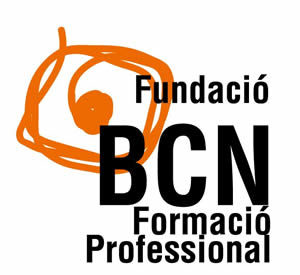Last Thursday, April 7th, the BCN Vocational Training Foundation and CaixaBank Dualiza have organized the presentation of their study: “The Catalan health and social-health sector in terms of vocational training” with the collaboration of Barcelona Activa and “la Caixa” Foundation. The event took place at the Caixaforum in Barcelona.
In this study, an X-ray of the current situation in the health sector and the care and treatment of elderly and dependent people is made in terms of VET. The analysis carried out has involved knowing the characteristics, dynamics and trends of the labor market in these sectors and analyzing the training needs with a prospective view, in order to improve the different associated VET offer.
The presentation was opened by the Foundation’s executive president Sara Berbel Sánchez. “After having gone through an experience such as the social and health crisis generated as a result of the COVID-19 pandemic, we are more than aware of the radical importance of health, socio-health and social sector,” she remarked. “This visibility and recognition have resulted, among other things, in more interest for the health sector by young people starting vocational studies”.
Berbel ended by noting that it is essential to have qualified professionals in the fields of assistance, diagnosis and health treatments, as well as professionals who can offer quality care and treatment to the elderly and dependent persons; hence the importance of the study, whose main objective is to identify the training needs of both current and future market.
Angel L. Miguel Rodriguez, General Director of Vocational Training of the Generalitat de Catalunya, continued by stressing the importance of these type of studies, in order to have a deep knowledge of the sector and be able to make proper changes and modifications.
Juan Carlos Lauder López, director of CaixaBank Dualiza, continued stating “the importance of this type of research, which contributes to having a real knowledge of the state of many of our sectors and, in this case, of the most affected sector during the pandemic and, therefore, most subject to changes. Thanks to this analysis we can see which are the strengths and weaknesses, and where we can direct our efforts to achieve improvements that will translate into more and better opportunities for our professionals and for our society”. Lauder added that “for all this, vocational training continues to be a key training, because of the role it has to play in the training of professionals, in updating the skills of those who are already working, and in the training of new technicians who will take on functions that are yet to come”.
Rafael Bengoa, co-director of the “Institute of Health and Strategy (SI-Health)” spoke on Social vulnerability and social-health collaboration. Bengoa stressed the need for a specific technical process to transfer the cost of an integrated health system, also including the socio-health syste , to the political level. To this end, he pointed out, the political implementation must be done from an autonomous level. Successful local experiences are being evaluated, in which both systems are integrated so that there can be subsequent financing by the government. This evaluation, Bengoa continues, would be accompanied by an evaluation of the sustainability of these types of models.
“The study was based on a survey counting with more than 250 organizations from the sector, as well as 33 interviews and 4 focus groups with different key agents”, explains Ana Vicente, the study’s main researcher.
Àngel Tarrino Ruiz, head of the VET Observatory of Fundació BCN Formació Professional, has exposed the main mismatches between the labor market and the different training offers: in relation to specific professional profiles for which the current degrees do not offer an adequate preparation, a scenario of “non-official training” has emerged and it is urgent to regulate it. The competencies and professional categories of these professional profiles are not regulated either. The lack of specialties in the VET system ends up harming healthcare centers that must devote excessive resources to the qualification of certain profiles. Even so, he also explained some of the main assets of the sector: the high social recognition of the sector due to COVID-19, as well as a relevant growth in the employability of both sectors in the medium and long term due to the aging of the population. Tarriño ends highlighting the new VET profiles that will be needed in the future, as technician in: control and quality assessment; Bigdata, 3D printing prosthetics, rehabilitation specialist or gerontology assistant.
Mónica Moso Díez, head of the Knowledge and Innovation Center of CaixaBank Dualiza, pointed out that it is key to develop a comprehensive vision of the health and social-health sector, seeing the interconnections and promoting the flows of information, knowledge and professionals within the framework of this sector.
From the point of view of vocational training, some examples of measures are: the review of qualifications, competencies and functions of professional profiles from the macro sector, the strategic and comprehensive planning of the supply of vocational training, the promotion of the figure of specialist teachers, the linking of vocational training centers to health and social-health parks (with stays of teachers), the promotion of certificates of professionalism and dual vocational training.
Finally, Fabian Mohedano y Morales, executive president of the Public Agency for Vocational Training and Qualification of Catalonia, closed the event by thanking all the key players participating in the study, and explaining the need for the implementation of the 360º orientation that the agency is carrying out, in order to provide documented information on the existing market demands. This orientation, Mohedano continued, involves prospecting studies such as this same study and guidance to counselors on the results of the prospecting to inform the future worker in a more effective way. He concluded by thanking the Foundation for its essential task as one of the key promoters of vocational training.
Complete study (Spanish version): https://drive.google.com/file/d/16g9HuI72f_wvnhQxpgjDsdCEhyQgGmIR/view





